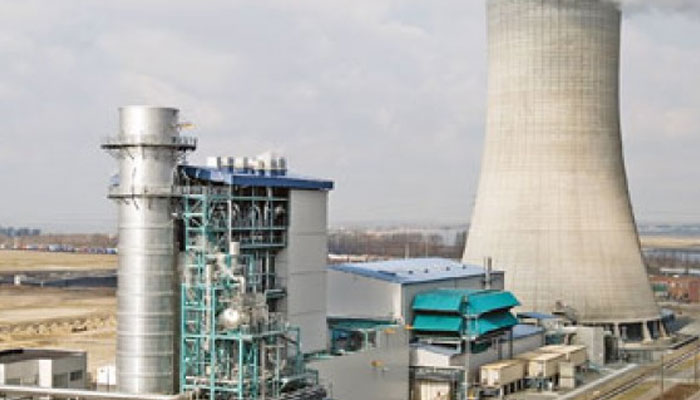Big industry contracts 42pc in April
KARACHI: Large scale manufacturing (LSM) lost almost its half during April – an unprecedented industrial debacle in Pakistan’s history, but this was widely expected in the market considering the coronavirus-associated lockdown.
Pakistan Bureau Statistics (PBS) data on Thursday showed that LSM – accounting for 9.5 percent of GDP – contracted 42 percent year-on-year and 33 percent month-on-month in April.
The annual fall in LSM numbers was led by automobile sector that contracted 97 percent, followed by iron and steel products (89pc), electronics (81pc), textile (64pc), coke and petroleum products (52pc), food, beverages and tobacco (23.2pc), and nonmetallic mineral products (17.4pc).
Only fertiliser sector posted a 6.2 percent year-on-year growth in April.
The government recently decided to partially ease lockdown that was imposed in late March to contain spread of the coronavirus outbreak. While the number of cases is relentlessly increasing, the government is faced with an exceptional challenge to ameliorate the economy that was already staggering towards stability.
The state of LSM was neither satisfactory before the lockdown as the PBS number showed that it contracted nine percent in the first 10 months of the current fiscal year of 2019/20.
This contraction indicates another possible revision in the economic growth estimate for the current fiscal year. The government revised down growth estimate to negative 0.4 percent, based on the LSM contraction of 5.4 percent in the July-March FY2020.
Saad Hashmi, executive director of brokerage BMA Capital agreed to this likelihood. “There is a possibility of another revision,” said Hashmi.
As opposed to the growth projection of IMF and the State Bank of Pakistan at negative 1.5 percent for FY2020, the government set its own estimate. However, it usually kept revising economic targets before and after coronavirus crisis. Growth for the last fiscal year was revised down to 1.9 percent from 3.3 percent earlier.
“Though the lockdown is a low probability event, what is conspicuous by its absence is governance,” an analyst said on condition of anonymity, referring to belated responses of the government to ailing economy before and after the COVID 19, novel coronavirus.
In July-April, the production increased in fertilisers and paper and board, while it significantly decreased with regards to textile, food, beverages and tobacco, coke and petroleum products, pharmaceuticals, automobiles, iron and steel products and electronics.
LSM contributes 78 percent to manufacturing that has 13 to 14 percent share in GDP and employs 16.1 percent of labour force, according to the latest economic survey.
-
 Super Bowl 2026 Live: Seahawks Lead Patriots 3-0 After Defensive First Quarter
Super Bowl 2026 Live: Seahawks Lead Patriots 3-0 After Defensive First Quarter -
 Bad Bunny's Super Bowl Halftime Show: What Time Will He Perform Tonight?
Bad Bunny's Super Bowl Halftime Show: What Time Will He Perform Tonight? -
 Where Is Super Bowl 2026 Taking Place? Everything To Know About The NFL Showdown
Where Is Super Bowl 2026 Taking Place? Everything To Know About The NFL Showdown -
 Drake 'turns Down' Chance To Hit Back At Kendrick Lamar At Super Bowl
Drake 'turns Down' Chance To Hit Back At Kendrick Lamar At Super Bowl -
 Sarah Ferguson Had A ‘psychosexual Network’ With Jeffrey Epstein
Sarah Ferguson Had A ‘psychosexual Network’ With Jeffrey Epstein -
 Czech Republic Supports Social Media Ban For Under-15
Czech Republic Supports Social Media Ban For Under-15 -
 Khloe Kardashian Shares How She And Her Sisters Handle Money Between Themselves
Khloe Kardashian Shares How She And Her Sisters Handle Money Between Themselves -
 Prince William Ready To End 'shielding' Of ‘disgraced’ Andrew Amid Epstein Scandal
Prince William Ready To End 'shielding' Of ‘disgraced’ Andrew Amid Epstein Scandal -
 Chris Hemsworth Hailed By Halle Berry For Sweet Gesture
Chris Hemsworth Hailed By Halle Berry For Sweet Gesture -
 Blac Chyna Reveals Her New Approach To Love, Healing After Recent Heartbreak
Blac Chyna Reveals Her New Approach To Love, Healing After Recent Heartbreak -
 Royal Family's Approach To Deal With Andrew Finally Revealed
Royal Family's Approach To Deal With Andrew Finally Revealed -
 Super Bowl Weekend Deals Blow To 'Melania' Documentary's Box Office
Super Bowl Weekend Deals Blow To 'Melania' Documentary's Box Office -
 Meghan Markle Shares Glitzy Clips From Fifteen Percent Pledge Gala
Meghan Markle Shares Glitzy Clips From Fifteen Percent Pledge Gala -
 Melissa Jon Hart Explains Rare Reason Behind Not Revisting Old Roles
Melissa Jon Hart Explains Rare Reason Behind Not Revisting Old Roles -
 Meghan Markle Eyeing On ‘Queen’ As Ultimate Goal
Meghan Markle Eyeing On ‘Queen’ As Ultimate Goal -
 Japan Elects Takaichi As First Woman Prime Minister After Sweeping Vote
Japan Elects Takaichi As First Woman Prime Minister After Sweeping Vote




